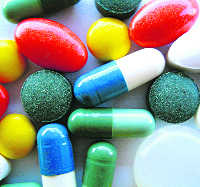Daiichi exits Sun Pharma; ends 7-year tumultuous ride in India
Sanjeev Sharma
Tribune News Service
New Delhi, April 21
Japanese pharma major Daiichi Sankyo today exited the Indian market, ending its traumatic 7-year run by selling its entire holding in Sun Pharmaceuticals in a over Rs 20,000-crore transaction on the stock exchanges.
Daiichi’s holding in Sun Pharma, India’s largest pharma company, was the result of the merger of Ranbaxy into the Indian pharma major.
Ranbaxy had been acquired by the Japanese major almost seven years ago but after a torrid run, including many regulatory problems in the US, had been sold to Sun Pharma.
In an announcement in Tokyo yesterday, the Board of Directors of Daiichi Sankyo had approved a resolution to sell entire or part of its holding of Sun Pharma shares.
On March 25, Daiichi Sankyo received the shares of Sun Pharma following the completion of Sun Pharma’s merger with Ranbaxy Laboratories Limited.
Giving the rationale of the sale, it said from the perspective of the improvement of corporate value, Daiichi Sankyo has performed a review of the Sun Pharma shares and reached a conclusion to sell the shares entirely or partially.
“After the sale, Daiichi Sankyo will not be a major shareholder of Sun Pharma. However, the existing business partnership with Sun Pharma will remain unchanged,” it announced.
Daiichi had bought a majority stake in Ranbaxy Laboratories in 2008 for Rs 22,000 crore. Given the huge rise in Sun Pharma shares, it has been able to sell its much smaller holding of 9% or 21 crore shares for more than Rs 20,000 crore or almost the same as its acquisition price of Ranbaxy.
At the average share price of about Rs 950 in the morning trade when Daiichi announced selling its stake, the value of its shares is estimated to be over Rs 20,000 crore.
The sale had a major impact on the stock market which fell to a four-week low and the rupee fell to a three-and-a-half-month low on outflow concerns. Shares of Sun Pharma fell by more than 10%, its biggest fall in six years.
The Japanese company had a terrible run after the acquisition of Ranbaxy with several regulatory problems with the US FDA.
The US Food and Drug Administration banned 30 generic drugs produced by Ranbaxy at its Dewas (Madhya Pradesh) and Paonta Sahib and Batamandi unit in Himachal Pradesh, citing gross violation of approved manufacturing norms.
The Japanese firm had alleged that certain former shareholders of Ranbaxy had “concealed and misrepresented critical information concerning the US Department of Justice and the FDA investigations”.










